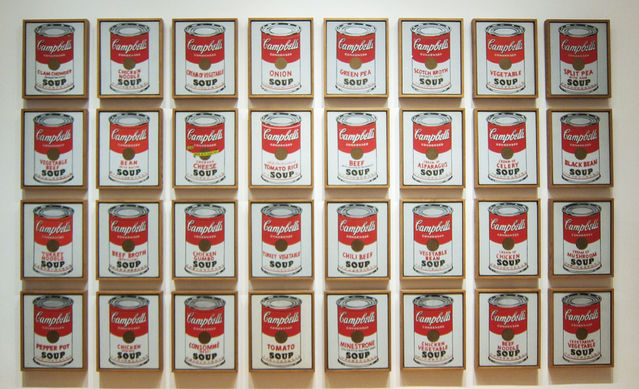Environment
Is Militarism a Disease?
Violence we live with everyday and don't even notice.
Posted April 12, 2016
A person’s behavior is determined not solely by the individual's personality but also through that individual interaction with his or her environment. Despite the American dream of the self-made man, human agency is not reliant on the individual alone.
In Marc Pilisuk and Jennifer Achord Rountree believe the social environment, especially economically-driven incentives, has enormous impact on an individual’s choices and path through life. (The Hidden Structure of Violence: Who Benefits from Global Violence and War, 2015).
In their view, social institutions inflict violence on people in both direct and indirect ways. Institutional violence assaults us directly, for instance, in the "collateral damage" of contemporary wars, which are distinctive in that 90% of those killed are civilians. Another feature that characterizes today’s warfare is that is not necessarily fought between nation states, but is usually fought over natural resources.
Indirect forms of violence afflict us more insidiously. A pervasive form of indirect violence afflicts the the international community when transnational corporations exploit the natural resources of poor countries, leaving toxic waste behind and the local people stricken with poverty. The jobs we often here about created for these poor people by large companies are jobs in sweatshops that pay below subsistence level. Pilisuk and Rountree describe conditions of labor abuses in a toy factory in Vietnam making Disney character’s for McDonald’s Happy Meals: poor ventilation, forced overtime, young women’s exposure to chemical toxins that lead to hospitalization and earnings of 6-8 cents per hour (less than is needed to pay for the standard meal in this part of the world, a bowl of rice and vegetables). The same year the CEO from Disney earned $203 million. Indirect violence also occurs, for instance, when costly war preparations erect nuclear plants that compromise the heath of those living near by; increased cancer and birth defects arise around each of America’s 18 nuclear weapons facilities.
A persuasive antiwar critique is launched using extensive data to illustrate how it serves corporate interests not only through the possession of natural resources, but also from gains due to arms development and sales from their weapons’ specialists. Here at home, there is inequity in other ways: government officials and senior military personnel make the decision to declare war while people with less access to education and job opportunity defend the front line. Indeed America is exceptional: our nation develops and supplies the most weapons and also uses the most arms, more than any other nation on earth. These authors describe militarism as a cultural disease. Perhaps we can think of insatiable consumerism as one also. Philosopher Peter Singer calls this the "hedonistic treadmill" of modern times, a constant yearning for the next best thing.
Monetary resources channeled into wars like the one in Iraq could be allocated toward public health and social programs that contribute to improving our countries’ infrastructure, feeding those without food, finding a cure for AIDS, giving shelter to the homeless and providing universal health care. Consider: many of our societal ills such as poverty, climate change, industrialized farming which depletes the soil and had led to the genetic engineering of foods -- are all symptoms of corporate greed. I think of it as corporate narcissism.

“Why is there not public outrage for the wealth inequity in our country?” Pilisuk and Rountree respond: corporations use the mass media monopolies it has owned since the 1980s-90s to convince the public of their benevolent image. In their opinion, journalistic integrity has steadily declined since the use of propaganda in WWI, and the truth has become harder to find in the “information diet” the public is fed. Access to information is a matter of power, and most of us flounder in the “false ‘realities’” that pass as news.
The book tells of reporters from Fox News who quit because they were coerced to take certain political positions with regard to their stories. The authors further assert that even our public media is dominated by corporations through underwriting.
Many politicians, financed by large companies, tell us of the gift of democracy to foreign lands while pillaging the natural resources of these poorer countries with weak labor and environmental laws. Our government proselytizes democracy while perverting it. We in fact have a “shadow government” that speaks a subliminal language: corporate interests masquerade as abstract ideals such as patriotism, service to our country, democracy, freedom, or a certain religious identity.
The media distorts our perceptions, inciting us with fear, for instance over immigrants entering our country, then demonizing an "enemy" people so we can project our fears onto them. Our government then responds by spending billions of dollars militarizing the US border in missions such as operations “Gatekeeper,” “Hold the Line,” and “Return to Sender.” Also recollect the vision of Trump’s "beautiful wall." Anxiety surrounds the notion that we will not only loose jobs here at home, but also a sense of American identity as we have known it. Thus we must guard against infiltration, contamination.

“Of the 100 largest economies in the world fifty-one are now not nations, but corporations,” Pilisuk and Rountree confide. The increasing centralized control over the earth’s natural resources and the increasing wealth gap caused by it pose the most debilitating form of indirect violence there is, one that predicts the highest decline in human health and emotional well being within and across countries.
Our future is precarious with the degradation industry wreaks on the environment, with the absence of respect for life, and little belief in spiritual inquiry.
Citing theologian Harvey Cox, the writers suggest that our God today is The Market God, with its fateful "falls," redemptive "corrections," and shrouded mysteries. This deity’s First Commandment: “There is Never Enough.” Cox further notes that this postmodern God is the unseen and quintessential rival of all our world religions. It makes people interchangeable with things in much the same way that our body parts have become commodified: blood, organs, sperm all now carrying price tags. Cox sees this as a “dazzling display of reverse transubstantiation” which characterizes our age of multinational corporations (p. 22). While historically, at the climactic moment of mass, bread and wine are converted into the body of Christ, in our age of turbo capitalism the Market God turns bodies into objects. It cannibalizes its children, sacrificing the values of public good for the interests of corporate shareholders.
Yet Pilisuk and Rountree offer a useful path of remedy, one that begins with acknowledging the troublesome existence of profound global violence. Secondly, keep from demonizing those individuals, groups or states most central to the perpetuation of this violence. Lastly, understand the system and retain hope that a shared awareness and understanding will empower all citizens everywhere to work toward creating a peaceful planet.
REFERENCES
Cox, H, 1999, “The Market as God: Living the New Dispensation,” The Atlantic Monthly, 283:3, 1999, pp. 18-23.
Pilisuk, Mark and Achord Rountree, J, 2015, The Hidden Structure of Violence: Who Benefits from Global Violence and War, Monthly Review Press, New York.
. ______________________




